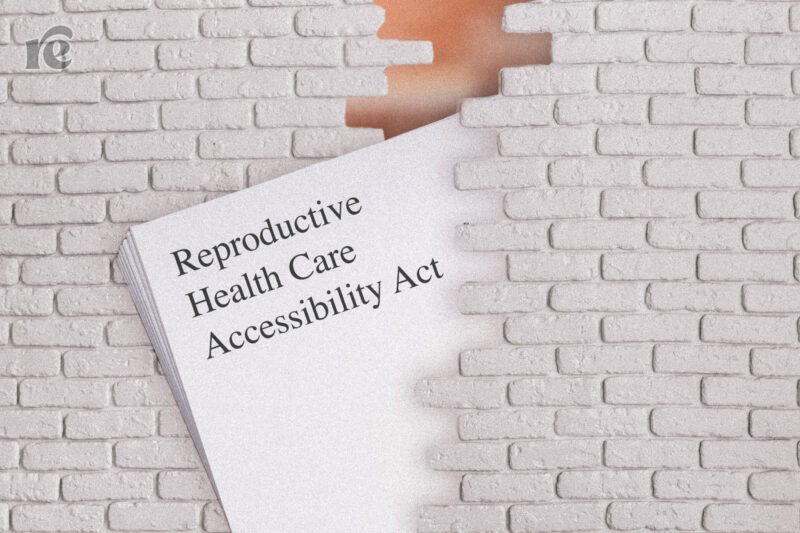Exclusive: Sens. Murray, Duckworth Reintroduce Reproductive Health Care Accessibility Act
The bill was introduced in the previous session of Congress but failed to make it out of committee.

Sens. Patty Murray (D-WA) and Tammy Duckworth (D-IL) are reintroducing the Reproductive Health Care Accessibility Act today.
The bill, first introduced in the previous session of Congress, would make reproductive health care more accessible for disabled people and increase the number of disabled people in the reproductive health workforce. Reps. Cori Bush (D-MO) and Ayanna Pressley (D-MA) are introducing companion legislation in the House.
“People with disabilities have long faced discrimination and real roadblocks to getting the health care, including abortion care, that they need—and it’s become a full-blown crisis in the year after the Dobbs decision overturned the right to abortion, especially for the nearly 3 million disabled women who live in states without access to reproductive health care,” said Murray, referring to a recent report from the National Partnership for Women and Families (NPWF).
NPWF, which endorses the bill, found that more than 36 million U.S. women of reproductive age live in states that have banned abortion or are likely to do so. The nearly 3 million of those women who are disabled represent a disproportionate 52 percent of women of reproductive age in these states.
“As we continue to fight back against Republicans’ escalating attacks on reproductive health care across the country, there’s so much more we need to do to ensure women and people with disabilities can access high-quality care from providers who understand their unique health-care needs,” Murray said. “My legislation with Senator Duckworth would make a big difference in helping people with disabilities access the high-quality reproductive care they deserve—and I’ll be fighting to pass it this Congress.”
Nationwide, there are 4.1 million disabled parents. But disabled people are more likely to experience pregnancy complications, and 11 times more likely to die from pregnancy-related causes. They are also twice as likely to live in poverty, with disabled people of color bearing an even more disproportionate poverty risk. As a result, 1 in 4 disabled adults don’t have a regular health-care provider and have unmet health needs due to the cost of care, according to the Centers for Disease Control and Prevention.
All of this, in combination with the United States’ long history and present reality of reproductive coercion and forced sterilization of disabled people, makes seeking reproductive health care deeply fraught—and potentially even dangerous—for disabled people.
“For too long, Americans with disabilities have faced persistent barriers to health-care services, equipment, and providers—and with right-wing efforts underway to go even further to undermine these rights in the wake of the overturning of Roe, many are rightfully worried about having an even harder time accessing the reproductive care they need,” Duckworth said, adding that she wants to ensure “all of us in the disability community are not left behind in getting the care we need, when we need it.”
The bill includes:
- $10 million to fund training programs for health-care professionals;
- $10 million for educational programs focused on the reproductive health needs of disabled people;
- $10 million to establish a new technical assistance center to provide recommendations and best practices regarding sexual and reproductive health care for people with disabilities;
- $15 million to expand the health-care workforce by increasing the representation of disabled people in the physician and nursing professions;
- $15 million to fund an in-depth study on reproductive health care for disabled people by the Department of Health and Human Services.
“This bill marks a major push forward in addressing some of the significant barriers disabled people face in pursuing reproductive health care and makes clear that there is a dire need for legislation and policies to redress disabled people’s right to culturally competent reproductive health care,” said Mia Ives-Rublee, director of the Disability Justice Initiative at Center for American Progress, which endorses the bill.
The Reproductive Health Care Accessibility Act is also endorsed by a long list of reproductive health and rights groups, including the Center for Reproductive Rights, Planned Parenthood, the National Women’s Law Center, the National Abortion Federation, Power to Decide, the Reproductive Health Access Project, and the National Latina Institute for Reproductive Justice.
The bill was first introduced last year in the wake of the Supreme Court’s decision in Dobbs v. Jackson Women’s Health Organization, but did not make it out of committee. In the year since, more than a dozen states have banned abortion entirely, with more likely to follow. As barriers to abortion and all reproductive health care continue to mount, the bill’s sponsors say the time to pass it is now.
“There has been a daily assault on access to reproductive health care, and our siblings with disabilities are deeply impacted by barriers to care,” Pressley said. “Now more than ever we need comprehensive, culturally congruent, and accessible reproductive health care for the disability community. I am proud to join this bicameral effort and reintroduce the Reproductive Health Care Accessibility Act. Lives literally depend on it.”

